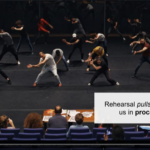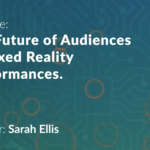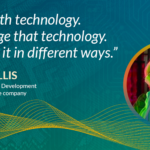
NICOLE ALEONG
University of Amsterdam
[s2If is_user_logged_in()]DOWNLOAD PDF
[/s2If]
[s2If current_user_can(access_s2member_level1)]
[/s2If]
Cultivating resilience while navigating uncertainty is crucial for refugees. In the Netherlands, after receiving asylum and the right to work, refugees are often urged to adapt or evolve in hopes of successfully integrating into the Dutch economy. How do forced migrants who pursue work in creative enterprises help us rethink the relationship between forging new lives and uncertain futures? In this paper, resiliency of refugees is presented as a process of creative performance and experimentation. Efforts taken by refugees to explore, or ‘self-potentialize’, new future creative pathways suggest that resilience is overly simplified when defined as a pursuit of resistance to integrate and conform into established creative industries. The stories of two refugees living in Amsterdam showcase how resiliency is future-oriented, processual (Pink & Seale 2017), and connected to the preservation...




